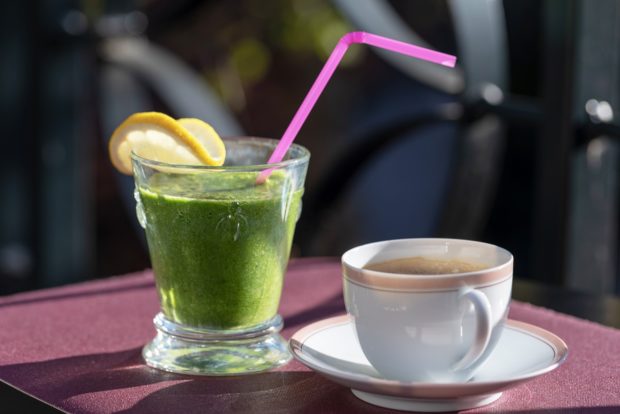Recently I attended a professional development workshop on mental health. The presenters studied and work in the field of psychology and within education and training. For me, a large foundational part of mental health is ensuring that our physical health – our bodies – are taken care of, supported and nurtured. In my experience, the two go hand-in-hand.
It seems quite strange to me when I see someone who is ‘qualified’ in a physical or mental health field or holds a position of importance or power, yet their body, movements and manner do not show signs of good health and vitality. It highlights there’s a greater problem stemming from our education on the topic, and what we have chosen to accept as true. No matter how much we ‘know’ about a subject, the body always has its own marker and gauge of whether it is working at its optimum vital level and in harmony within all other areas or not. This fact we cannot change.
On the morning of my professional development workshop I had quite a distance to drive in peak hour traffic, so I made sure that I gave myself enough time without rushing. I arrived 15 minutes early and was the first to arrive. I walked in, said hello to the two presenters and went to find a seat.
As I was choosing my seat, unpacking my belongings and setting them up just as I needed them to be for the next 8 hours – placing my drinks, pen, paper, books, computer etc. down – one of the presenters said to me, “Whoa, that’s healthy.” Immediately I knew he was referring to my vegie drink and not my herbal tea or the manner in which I set up my space, simply because it was green in colour.
Initially I felt a little awkward that my choice of drink, which was a normal for me, had been highlighted. So, at the time I smiled and replied “Mmm…” But this comment caused me to pause and got me thinking… I pondered on why his response was a “Whoa.” I recalled that I have come across this reaction quite a few times over the years with ‘healthy’ food and drink choices, either when I myself was making them or when others around me at work or in public were making them.
These types of comments are reactionary to a way of eating or drinking that is not so commonly seen or practised, thus highlighting the person who is looking after their body and consuming nutritious food as being ‘different.’ Immediately I questioned what our societal gauge is being set from. If I had come in with a sausage roll and cream bun, it is likely I would have got no comment, or perhaps one that was in favour of my food choice.
Let’s face it, making supportive food choices that nutritionally support the body is going against a current norm and way of how people commonly choose to eat in society today. We do not eat to nurture or hold our body in harmony – a fact that is shown in the continuing rise of non-communicable illness and disease rates today, such as diabetes.
If it is not common and even considered unusual for people in general to drink or eat something that is good for their bodies to a point that it stands out and gets labelled and highlighted as ‘healthy,’ then how far have we slipped away from what is true and natural for our bodies. I find it interesting that we even have this word ‘healthy’ and don’t just live as our bodies need us to live. It is a clear indicator that we base our living and vocabulary around looking after ourselves from a way that is not conducive to the true vitality of our bodies.
Why do we not seem to question the meals or food people are consuming that are clearly not supportive for the body, yet are very quick to identify those who make more supportive food choices? Imagine if people started speaking on behalf of the vitality of the body by publicly noting to other people, “Whoa, that’s really unhealthy.” I wonder if we would start to think twice about what we are putting in our bodies.
The fact is that more supportive food choices do stand out from the crowd. And this is simply because the norm, the majority, the crowd acceptably choose food that is not supportive to the body. BUT, what if the majority did eat in a way and manner that nourished and vitalised the body, allowing it to run at optimal level?
Why do we even have a perception of what ‘healthy’ is and why is it not just embedded into the way we live?
Our understanding, perception and definition of ‘being healthy’ today is actually only based on and comparable to, the very unhealthy lifestyle – the way the majority of society are choosing to live, eat, indulge in and over consume.
This to me is a type of rot when we look at the extent of the damage it does to our bodies, our perception of health, the pressure it places on our medical system and so on. The illness and disease our bodies are increasingly showing through our health statistics speak loudly of our current global choices… to the point that the definition of health in our English language dictionary is stated as “the state of being free from illness or injury.” (1) Why is health not defined as, “the body working in its true optimal and vital order, each part working in harmony and joy with all others”?
If we all naturally lived from the latter definition as being our norm, then the word ‘health’ and a definition for it would probably not exist, simply because this would just be the way it was. Caring for our bodies would be the norm.
Back to my professional development workshop and the comment from one of the presenters that started this line of pondering and blog . . . if I had the moment again to respond to his “Whoa, that’s healthy”, I probably would have replied –– “only relative to how we live today.”
By Johanna Smith, Ba Education, Diploma of Counselling, Esoteric Practitioner, Perth, Western Australia
References:
1.Oxford Dictionaries | English. (2018). health | Definition of health in English by Oxford Dictionaries. [online] Available at: https://en.oxforddictionaries.com/definition/health [Accessed 1 Aug. 2018].
Further Reading:
Eating Dis-orders
To Nourish or Bludgeon – How do we Use Food?
Living your own medicine





